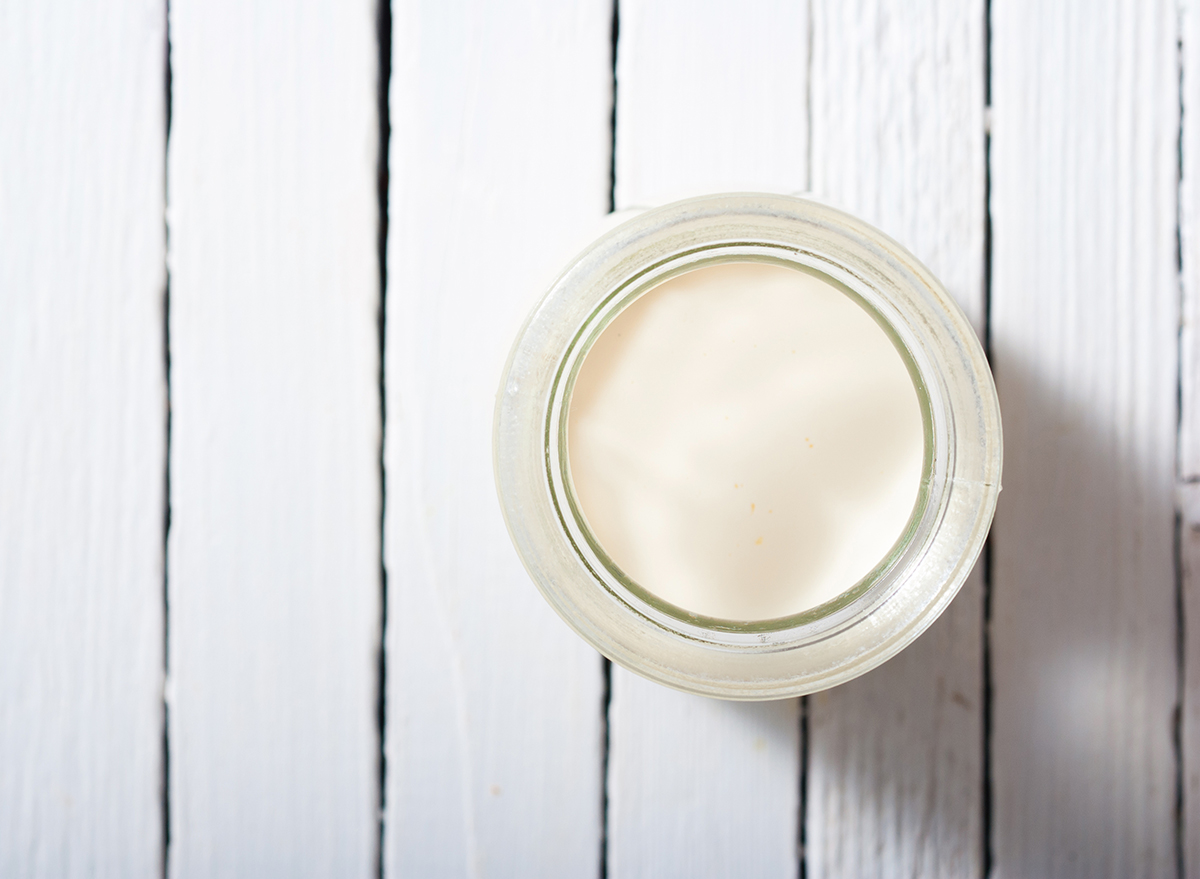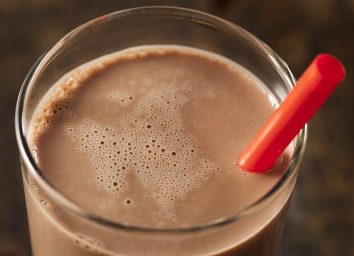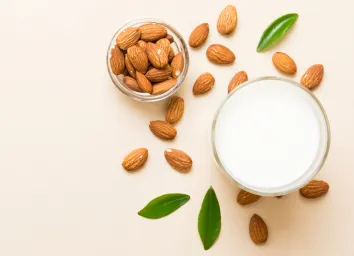Should You Start Drinking Goat Milk for Gut Health?

Two things are hot topics in health trends right now: Alternative milks and gut health. The industry of milking anything other than cows (we're talking almonds, soy, coconuts, and, most recently, oats) has truly taken off. As has the pursuit of gut-healthy foods—with recent research deeming the gut as the true compass for overall physical and mental health. These trends have given goat milk a rise in recent popularity.
What is the nutritional makeup of goat's milk?
"Goat's milk has similar nutrition as cow's milk, with important nutrients like calcium and vitamin D," says Angela Lemond, RDN, CSP, LD, registered dietitian nutritionist and national media spokesperson for the Academy of Nutrition and Dietetics. "Goat's milk is higher in saturated fat and calories than cow's milk. An 8-ounce glass is around 170 calories, as compared to 150 calories for whole cow's milk. Goat's milk is a bit higher in calcium, magnesium, and potassium, but cow's milk is higher in B12, riboflavin, folate, and selenium."
But where goat milk has the one-up is in its gut health benefits.
Why is goat milk so healthy for your gut?
Goat milk contains prebiotics, which help feed probiotics in the gut.
"Prebiotics are special types of fibers that fuel probiotics (the microorganisms)," says Monica Auslander Moreno, MS, RD, LD/N, and nutrition consultant for RSP Nutrition. "They are found in certain foods and additives. Probiotics (in the microbiome) are implicated in various health conditions/situations like weight, immunity, sleep, and mood, so ensuring they are adequately nourished is very important."
Prebiotics are not found in cow's milk, but may help digest lactose, making it easier on the gut to digest.
"Unlike cow's milk, goat's milk contains a prebiotic called oligosaccharides," says Lemond. "Prebiotics form probiotics, and probiotics have been known to assist with lactose digestion. And it is possible that the presence of prebiotics in goat's milk may help with (overall) digestion."
But the prebiotics aren't the only things that make goat's milk easier on the gut.
"There is some evidence that goat's milk may be lower in A1 protein, which U.S. cows typically have a lot of (which many people do not tolerate well), so that may be preferable," says Auslander Moreno.
If you are truly lactose intolerant though, you may still want to avoid goat's milk.
"Many say that they tolerate goat's milk better than cow's milk. However, goat's milk only has one less gram of lactose than cow's milk," says Lemond.
How can you try goat's milk?
"If someone is having digestive problems with cow's milk, they can try goat's milk," says Lemond.
You can purchase goat's milk in most grocery stores, as well as directly from farms.
"If you purchase goat's milk directly from a farm, make sure the milk is pasteurized," says Lemond.
Goat's milk is typically more expensive than cow's milk, but it also comes in fermented kefir as well. But if you're not ready to try goat's milk, there are other ways to improve gut health, and that includes eating fiber.
"High fiber foods help with moving the food through the digestive tract and also contain prebiotics, which form probiotics," says Lemond.
Fermented foods are also great for gut health.
"Digestive health can best be improved by consuming fermented foods (yogurt, kefir, tempeh, miso, natto, pickled foods, kimchi, aged cheeses) and various types of foods with fiber (aka prebiotics, specifically potatoes, Jerusalem artichokes, onions, dandelion greens, oatmeal, and beans), as well as controlling stress, decreasing alcohol use, and getting adequate sleep," she says.








